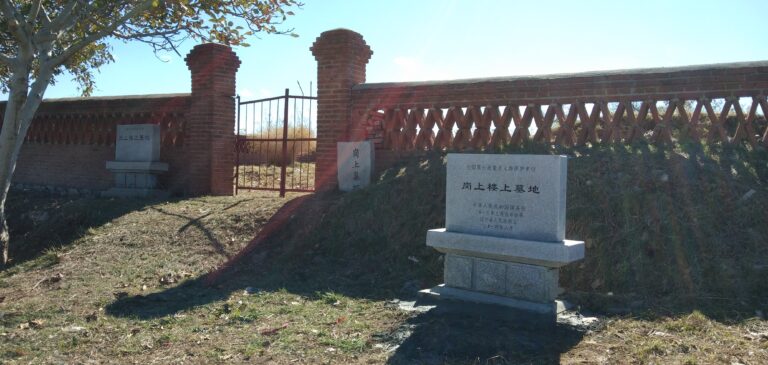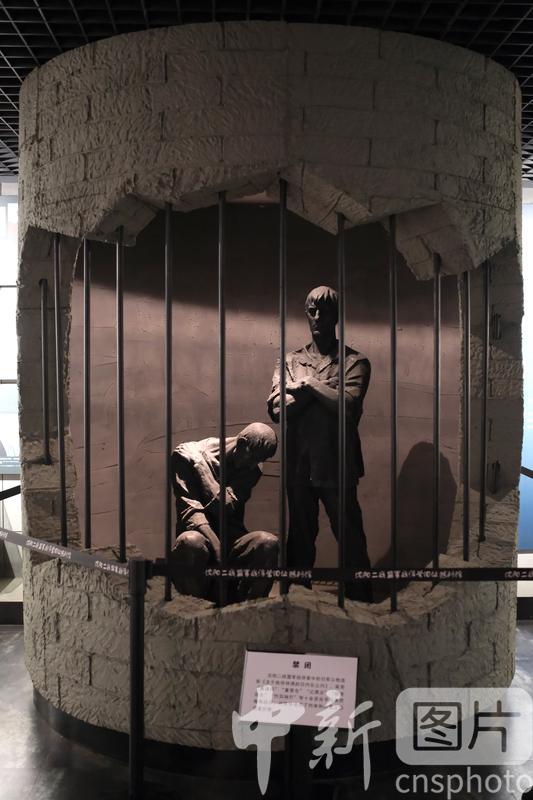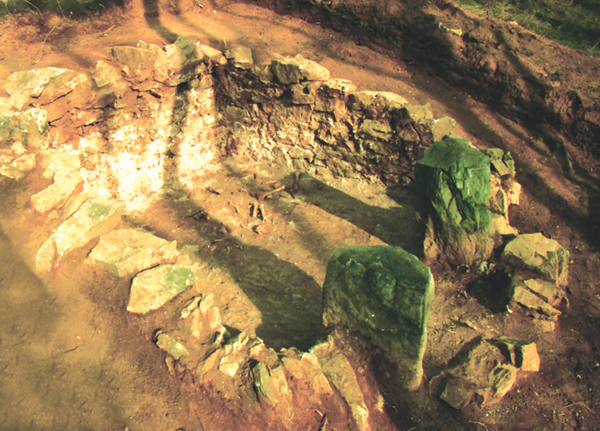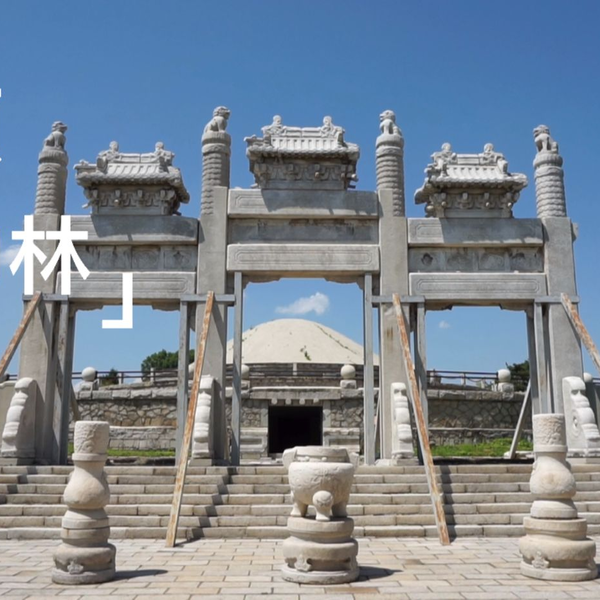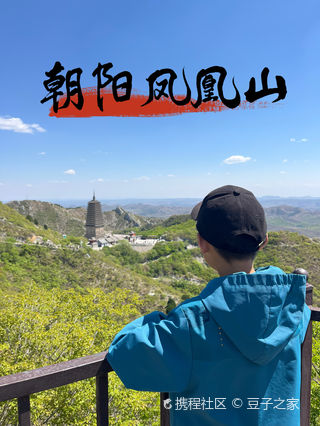Exploring Fushun Zhanfan Guanlisuo Jiuzhi: A Journey Through Time in Liaoning
An Essential Guide to Visiting Fushun Zhanfan Guanlisuo Jiuzhi
In This Guide
- An Essential Guide to Visiting Fushun Zhanfan Guanlisuo Jiuzhi
- The Rich History of Fushun Zhanfan Guanlisuo Jiuzhi
- Main Highlights: What to See at Fushun Zhanfan Guanlisuo Jiuzhi
- Planning Your Visit: A Practical Guide
- Tickets, Hours, and Booking
- How to Get There
- Local Cuisine and Accommodation
- Frequently Asked Questions
- Final Thoughts on Your Trip
Nestled in the heart of Fushun, Liaoning Province, lies a site steeped in history and significance—the Fushun War Criminal Management Site, known as 抚顺战犯管理所旧址. This unique memorial and museum serves as a poignant reminder of the struggles and sacrifices endured during the Second World War and the subsequent conflicts that shaped modern China. Established in June 1950, it stands as the world’s only preserved site specifically designed for the incarceration and reform of war criminals, housing a total of 1,403 individuals, including infamous figures such as Puyi, the last Emperor of China.
The site offers visitors a profound journey through time, showcasing exhibits that detail the lives of Japanese war criminals and their transformation during their imprisonment. The complex, which spans approximately 30,000 square meters, features a variety of significant structures including the main building, barracks, and numerous exhibition halls, all meticulously preserved to reflect their original state. As a designated national patriotic education base and a key cultural relic, it invites exploration and reflection on the painful yet transformative chapters of history.
The Fushun War Criminal Management Site not only serves as an educational hub but also as a solemn space for remembrance. It encapsulates the spirit of resilience and the importance of acknowledging historical injustices to foster a more peaceful future. Whether you are a history enthusiast or someone seeking to understand the complexities of war and reconciliation, this site offers a compelling narrative that resonates well beyond its walls.
The Rich History of Fushun Zhanfan Guanlisuo Jiuzhi
The Fushun War Criminal Management Center, located in Fushun, Liaoning Province, holds a unique and significant place in history as the only well-preserved facility in the world for the detention and rehabilitation of war criminals. Established in June 1950, this site was pivotal in the aftermath of World War II, particularly in the context of the Sino-Japanese War.
Initially constructed by the Japanese during their occupation of China, the facility was designed to suppress Chinese patriots. However, following Japan’s defeat in 1945, it was repurposed to house and reform war criminals. Over its operational years, the center detained a total of 1,423 individuals, including 982 Japanese war criminals, 71 from the puppet state of Manchukuo, and 356 affiliated with the Kuomintang. Among the notable figures incarcerated here was Puyi, the last Emperor of China.
The management center served not just as a prison but also as an educational institution, where detainees underwent ideological re-education. The facility has become an important site for patriotic education in China, recognized as a national key cultural relic protection unit. It represents a somber chapter in the region’s history, reflecting on the atrocities committed during the war and the transformation of those who were once perpetrators.
Today, the Fushun War Criminal Management Center is more than just a historical relic; it serves as a national educational base that promotes the understanding of patriotism and the sacrifices made during the anti-fascist struggle. The site’s exhibits, showcasing artifacts and documents related to the war and the rehabilitation efforts, offer visitors a profound insight into the complex narratives of war, justice, and reconciliation.
As visitors explore the center, they are encouraged to reflect on this multifaceted history, recognizing it as a testament to resilience and the enduring spirit of the Chinese people in the face of adversity. This site not only memorializes the past but also aims to educate future generations about the importance of peace and the lessons learned from history.
Main Highlights: What to See at Fushun Zhanfan Guanlisuo Jiuzhi
Nestled in the heart of Fushun, the Fushun War Criminal Management Institute Historic Site stands as a poignant reminder of China’s turbulent past and its remarkable journey towards peace. Here are the key highlights that make this site a must-visit for both history enthusiasts and curious travelers alike:
A Unique Historical Significance
Established in June 1950, the Fushun War Criminal Management Institute is the only remaining prison site globally dedicated to the detention and reform of war criminals. Over its operational years, it housed a total of 1,403 war criminals, including 982 Japanese offenders, 71 from the puppet state of Manchukuo, and even the last Emperor of China, Puyi. The site has been recognized as a National Patriotic Education Base, making it a significant landmark for those interested in the narratives of World War II and its aftermath.
Insightful Exhibits
Visitors can explore three main exhibition halls that delve into the history of war crimes and the rehabilitation efforts for those incarcerated here. The exhibits feature over 210 artifacts and approximately 4,000 pieces of historical documentation, providing a comprehensive look into the experiences of the detainees and the broader context of the war. The display of personal items, photographs, and multimedia presentations creates a powerful and immersive educational experience.
Thought-Provoking Memorials
Among the site’s notable features is the “Monument to Apologize to the Martyrs of the Anti-Japanese War,” which serves as a solemn reminder of the sacrifices made during this tumultuous period in Chinese history. This memorial is a poignant site for reflection and understanding the human cost of conflict.
Architectural and Natural Beauty
The historic site, spanning approximately 30,000 square meters, comprises not only the main building and detention facilities but also beautifully maintained outdoor areas. Visitors can appreciate the contrast between the stark history of the buildings and the tranquil gardens that have been developed around them, offering a peaceful space for contemplation.
Accessibility and Visitor Information
The Fushun War Criminal Management Institute is open to the public, with admission fees set at a reasonable 50 yuan. Special discounts are available for students, seniors, and groups, making it accessible for a wide audience. The site operates from 8:30 AM to 4:30 PM from April to October, and from 8:30 AM to 4:00 PM during the winter months, closing on Mondays.
A Gateway to Further Exploration
Visiting the Fushun War Criminal Management Institute can easily be incorporated into a broader exploration of Fushun’s rich cultural landscape. Nearby attractions include the Pingdingshan Massacre Memorial Museum and the Gao’er Mountain Park, offering a blend of historical exploration and natural beauty.
In summary, the Fushun War Criminal Management Institute is more than just a museum; it is a vital piece of history that invites reflection on the past and encourages a dialogue about peace and reconciliation. Whether you are a history buff or simply looking to understand more about the complexities of war and its aftermath, this site provides a compelling and educational experience.
Planning Your Visit: A Practical Guide
Practical Guide to Visiting Fushun War Criminal Management Site (抚顺战犯管理所旧址)
Location and Accessibility
The Fushun War Criminal Management Site is located in Fushun City, Liaoning Province, China. The site is easily accessible by car, with the nearest major city being Shenyang, approximately 60 kilometers away. Visitors can follow the highway from Shenyang, entering at the Dongling toll station and exiting at the Fushun toll station. Public transportation options are also available, but they may require a bit more planning.
Opening Hours and Admission Fees
- Opening Hours:
- April to October: 8:30 AM – 4:30 PM
- November to March: 8:30 AM – 4:00 PM
-
Closed on Mondays.
-
Admission Fees:
- General Admission: CNY 50
- Guided Tour: CNY 50
- Free admission for children, students below high school level, seniors over 70, and individuals with disabilities.
- Half-price for university students, seniors aged 60-69, and teachers.
Reservations
To manage visitor flow, it is recommended to reserve your visit in advance, especially during peak seasons. Reservations can be made through the official WeChat account of the site, where you can select your preferred time slot.
Exhibits and Highlights
The site spans approximately 30,000 square meters, with a building area of 10,000 square meters divided into three main exhibition areas:
-
History of the Reform of Japanese War Criminals: This exhibit provides insight into the 982 Japanese war criminals and 71 puppet government criminals imprisoned here after World War II. It features artifacts, documents, and multimedia presentations that tell the story of their imprisonment and reform.
-
Exhibition on the Last Emperor Puyi: This section focuses on Puyi, the last emperor of the Qing Dynasty, detailing his life and the circumstances surrounding his capture and rehabilitation.
-
Significant Historical Relics: Visitors can explore preserved areas of the original management facility, including the prisoners’ living quarters, medical facilities, and communal spaces that reflect life in the facility during its operation.
Each exhibit offers a profound reflection on the historical context of World War II and China’s subsequent struggles and triumphs.
Visitor Experience
The site is well-maintained, with clear signage and informational materials available in both Chinese and English. Guided tours are highly recommended, as they provide in-depth knowledge and context that enhance the experience.
While visiting, take a moment to reflect at the “Monument of Apology to the Martyrs of the Anti-Japanese War,” located at the site’s entrance. This monument serves as a poignant reminder of the sacrifices made during the war.
Surrounding Attractions
Fushun is rich in historical significance and natural beauty. Consider exploring nearby attractions such as:
- Pingtian Mountain Massacre Memorial Museum: A memorial dedicated to the victims of a tragic event during the Japanese occupation.
- Xilu Open-Pit Mining Scenic Area: Known as Asia’s largest open-pit coal mine, it offers stunning views and insights into the region’s industrial history.
- Gaolanshan Park: A scenic park with trails that lead to historical sites and natural landscapes.
Dining and Local Cuisine
After exploring the site, indulge in local cuisine. One must-try dish is the famous Fushun spicy noodle salad (麻辣拌), known for its unique flavors and textures. Various eateries around the city offer this local specialty, perfect for a post-visit meal.
Travel Tips
- Dress comfortably and wear good walking shoes, as the site involves walking through various exhibits.
- Bring water and snacks, especially if you plan to explore surrounding attractions.
- Be mindful of the site’s respectful atmosphere and maintain decorum while visiting.
Visiting the Fushun War Criminal Management Site offers a unique and educational glimpse into a critical chapter of Chinese history, making it a valuable stop for history enthusiasts and travelers alike.
Tickets, Hours, and Booking
Visitors to the Fushun War Criminal Management Center Museum (抚顺战犯管理所旧址) can look forward to an insightful experience at this unique historical site, which serves as a testament to a significant period in modern Chinese history.
Ticket Prices:
– General Admission: 50 RMB
– Guided Tour (optional): 50 RMB
– Free Admission:
– Students below high school age
– Children
– Seniors aged 70 and above
– Disabled individuals
– Police officers
– Religious figures
– Discounted Admission:
– University students: 25 RMB
– Seniors aged 60 to 69: 25 RMB
– Teachers: 25 RMB
Opening Hours:
– April to October: 8:30 AM – 4:30 PM
– November to March: 8:30 AM – 4:00 PM
– Closed: Every Monday
For a seamless visit, it’s advisable to book tickets in advance, especially during peak tourist seasons. Visitors can reserve entry slots through the museum’s official WeChat account.
This site not only offers a glimpse into the past but also serves as a valuable educational resource, making it a must-visit for history enthusiasts and families alike. Don’t miss the chance to explore the various exhibitions that chronicle the history of war criminals detained here, including the transformation efforts of Japanese war offenders, and the significant role this site played during the post-World War II era.
How to Get There
Getting to and around Fushun Zhanfan Guanlisuo Jiuzhi can be straightforward with various transportation options available. Here’s a comprehensive guide to help you navigate your journey to this significant historical site.
By Car
Driving is one of the most convenient ways to reach Fushun Zhanfan Guanlisuo Jiuzhi, especially if you plan to explore other attractions in the Fushun area. The site is approximately 60 kilometers from Shenyang, and the drive takes about an hour.
- Route: From Shenyang, take the G1 (Shenyang-Haikou Expressway) and exit at the Fushun toll station. Follow the signs to the Zhanfan Guanlisuo Jiuzhi.
- Parking: There is free parking available near the site, making it easy to stop and explore without the worry of parking fees.
Public Transportation
If you prefer using public transport, there are options available, though they may require some planning.
-
Buses: Regular bus services connect Fushun with Shenyang. You can take a bus from the Shenyang Bus Station to Fushun, which runs frequently throughout the day. Upon arriving in Fushun, you can take a local taxi or ride-sharing service to the site.
-
Taxis: Taxis are readily available in Fushun. You can use ride-hailing apps for convenience, or simply hail a taxi on the street. The fare from the city center to the site is typically reasonable.
Train Travel
For those coming from farther away, consider taking a train to Fushun. The city is well-connected by rail, with several services from major cities, including Shenyang and Dalian.
- Fushun Railway Station: Once you arrive at Fushun Railway Station, you can take a taxi or local bus to reach Zhanfan Guanlisuo Jiuzhi. The taxi ride should take around 20 minutes, depending on traffic.
Getting Around
Once at Fushun Zhanfan Guanlisuo Jiuzhi, the site itself is walkable, allowing you to explore the historical exhibits at your own pace. Additional attractions nearby, such as the Pingdingshan Massacre Memorial Hall and the Fushun Coal Mining Museum, can also be accessed via taxi or local buses.
Accessibility
The site is generally accessible for visitors with mobility challenges. However, it’s advisable to check specific accessibility features in advance, especially during peak tourist seasons.
Summary
Whether you choose to drive, take public transport, or arrive by train, reaching Fushun Zhanfan Guanlisuo Jiuzhi is relatively easy. With its historical significance and the surrounding attractions, planning your transportation around this site will enhance your visit to this important piece of history.
Local Cuisine and Accommodation
When visiting the Fushun War Criminal Management Site, it’s essential to experience the local culinary delights and find suitable accommodations to enhance your exploration of this historical landmark. Here’s a guide to some of the must-try dishes and the best places to stay in Fushun.
Culinary Delights
Mala Ban
One of Fushun’s signature dishes is Mala Ban (麻辣拌), a spicy and flavorful dish that has become beloved by locals and visitors alike. Often mistaken for mala tang, mala ban features a mix of vegetables, tofu, and meats, tossed in a robust, spicy sauce. A unique addition to this dish is the red meatballs (红丸子), made from flour and radish, which add a delightful texture. You can find numerous mala ban shops throughout the city, making it an easy and affordable meal option.
Mala Pen
Another local specialty is Mala Pen (麻辣盆), which resembles the traditional Mala Tang but is distinct in its preparation and flavor profile. This dish is typically served in a bowl with a variety of ingredients, including noodles, vegetables, and meats, all drenched in a spicy broth. It’s perfect for a fulfilling lunch or a late-night snack.
Local Snacks
While exploring Fushun, don’t miss out on trying rice cakes (大米饼), which pair perfectly with the spicy mala ban sauce. Many places offer these snacks, and they make for a delightful addition to your meal. Additionally, you’ll find various street food vendors selling local delicacies that are worth sampling.
Accommodation Options
Fushun International Hotel
For travelers seeking comfort and convenience, the Fushun International Hotel is a top choice. Located close to the city center, this hotel offers modern amenities, spacious rooms, and an on-site restaurant serving both local and international cuisine. It’s an excellent base for exploring the Fushun War Criminal Management Site and other nearby attractions.
GreenTree Inn Fushun Railway Station
If you’re looking for budget-friendly accommodations, consider the GreenTree Inn, which is conveniently located near the railway station. This hotel provides clean, comfortable rooms at an affordable price, making it a great choice for backpackers and those traveling on a budget.
Jinjiang Inn
Another good option is Jinjiang Inn, which offers a cozy stay with essential amenities and a pleasant environment. It’s ideal for families and business travelers alike, with easy access to local transport and attractions.
Conclusion
Fushun not only offers a glimpse into a significant part of history at the War Criminal Management Site but also delights your taste buds with its unique culinary offerings. With a range of accommodations to fit every budget, you can make the most of your visit and immerse yourself in the local culture. Enjoy your journey through Fushun, where history and flavor come together!
Frequently Asked Questions
Frequently Asked Questions
1. What is the Fushun War Criminal Management Center?
The Fushun War Criminal Management Center, established in June 1950, is the only well-preserved site globally that served to detain, educate, and reform war criminals. It housed 982 Japanese war criminals and 71 from the puppet state of Manchukuo, including Puyi, the last emperor of the Qing Dynasty. It is recognized as a national patriotic education site and a key cultural heritage site in China.
2. How much does it cost to visit?
The admission fee is 50 RMB per person, and additional guided tours are available for another 50 RMB. Discounts are offered for students, seniors, and certain professionals, while children and disabled visitors may enter for free.
3. What are the opening hours?
The center is open from 8:30 AM to 4:30 PM from April to October, and from 8:30 AM to 4:00 PM from November to March. It is closed on Mondays.
4. Is there any public transportation available to reach the site?
While public transportation options are limited, the site is easily accessible by car. Visitors can navigate directly to the Fushun War Criminal Management Center, and there are free parking facilities available on-site.
5. What can visitors expect to see at the center?
Visitors can explore various exhibits, including the history of Japanese war criminals, the reformation of Puyi, and significant historical relics. The center features multiple exhibition areas, including a display of artifacts and photographs that highlight the historical events of World War II and the anti-Japanese war efforts.
6. Are there any guided tours available?
Yes, guided tours are available for an additional fee, which enhances the learning experience by providing in-depth information about the exhibits and the historical context of the site.
7. Can children benefit from visiting the center?
Absolutely! The center is an excellent educational experience for children, helping them understand important historical events and the significance of peace. Parents are encouraged to visit and engage their children with the exhibits.
8. Are there any nearby attractions to visit?
Yes, there are several attractions in the vicinity, including the Pingdingshan Massacre Memorial Museum, Gao’er Mountain Park, and the Fushun Coal Mine Museum. A day trip can include visits to these sites to explore the rich historical and cultural heritage of Fushun.
Final Thoughts on Your Trip
Visiting the Fushun War Criminal Management Site offers a profound journey into history, allowing travelers to connect with the past in a place that holds significant cultural and educational value. This site stands as a testament to the resilience of the human spirit and the lessons learned from the atrocities of war. As the only well-preserved facility of its kind in the world, it not only commemorates the lives of those who suffered but also serves as a poignant reminder of the importance of peace and understanding.
For visitors, the experience is enriched by the beautifully curated exhibitions, which invite reflection and dialogue about the impact of war on humanity. The site encourages us to remember the sacrifices made during the anti-Japanese War and to honor the legacy of those who fought for freedom.
As you leave Fushun, take with you the stories of the past, the importance of history in shaping our present, and the responsibility we all share in fostering a future of peace. Whether you are a history enthusiast, a casual traveler, or someone seeking a deeper understanding of human resilience, Fushun War Criminal Management Site is a place that will inspire and provoke thought long after you have departed.
